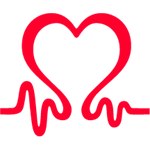With many of our patients managing diabetes, the British Heart Foundation provide information about oral medications that can control your blood glucose levels, which is critical to managing type 2 diabetes.
Why have I been given these medications?
Type 2 diabetes causes high levels of glucose (a type of sugar) in your blood. This is because your pancreas isn’t making enough insulin to lower your blood glucose levels, or because your body has become resistant to insulin.
Insulin allows glucose in your bloodstream to move into cells, giving you energy. If you have a high blood glucose level, your cells aren’t getting enough energy to function properly. Over time, an excess of glucose in your blood causes damage to blood vessels, which can lead to cardiovascular disease.
This increases your risk of having a heart attack or stroke. It can also lead to problems with your vision and damage your kidneys.
More than three million people in the UK have been diagnosed with type 2 diabetes, but it’s predicted that hundreds of thousands more are still undiagnosed.
Medications can help control blood glucose levels and keep them in a normal range. In the UK, the National Institute for Health and Care Excellence (NICE) and Scottish Intercollegiate Guidelines Network (SIGN) offer guidance on which drug is appropriate.
Are there interactions with heart medications?
Most common heart medications are safe to take with medications for type 2 diabetes. Others are used with caution, such as beta-blockers. They may mask the symptoms of low blood glucose, which can include shaking and sweating, caused by adrenaline trying to increase blood glucose levels. You may not get these symptoms as beta-blockers can block the action of adrenaline.
Are there any foods or drinks I should avoid?
Following a healthy, balanced diet can help prevent type 2 diabetes, or help manage blood glucose levels if you already have it. If you have diabetes, you don’t need to cut out sugar completely, but be aware of how much you consume.
In the UK, most of us eat more sugar than is recommended, from foods like sugary drinks, cakes, biscuits and jam, as well as the sugar we add to food ourselves.
What are the possible side effects?
Some medications, such as gliclazide, may cause low blood glucose levels. If this is the case for you, it may be best to switch to a different medication, such as pioglitazone. Low blood glucose levels can affect your thinking and cause you to lose consciousness.
You may gain some weight after starting your medication. This is because the glucose that was in your bloodstream is now being used by the body for energy, so your body is using the calories from the glucose.
Why haven’t I been prescribed insulin?
If your body is making enough insulin to keep your blood glucose levels within a normal range, or is sensitive enough to insulin to use it properly, then you don’t need extra.
If medications and lifestyle changes aren’t effective, your doctor may recommend insulin injections. To delay this, it’s important to be physically active and lose weight if you need to.
- Read more about insulin.
My GP says my blood glucose is normal. Can I stop the medications?
Many cases of type 2 diabetes are caused by lifestyle factors, such as being overweight. Lifestyle factors are also risk factors for other serious conditions, such as cardiovascular disease and some cancers.
Making positive changes, like eating a healthy, balanced diet and keeping physically active, mean your blood glucose levels may return to within a normal range without medications. However, if your GP recommends you continue taking medications, it’s important to do so.
You will always have an increased risk of having high blood glucose levels in the future, especially if you do not maintain your positive lifestyle changes.
Diabetes drugs and their uses
Drug group |
Example |
How it works |
Extra information |
| Alpha-glucosidase inhibitors | Acarbose | Stops your gut breaking down carbohydrates into glucose, which helps prevent blood glucose levels from rising | Can cause diarrhoea and flatulence |
| Biguanides | Metformin | Makes your body more sensitive to its own insulin | Drug of choice to treat type 2 diabetes |
| DPP-4 inhibitors | Saxagliptin Sitagliptin | Prevents breakdown of a protein that causes the pancreas to produce less insulin | Alternative to sulfonylureas, but for those who need a large reduction in blood glucose levels, these drugs aren’t suitable |
| GLP-1 agonists | Exenatide | Stimulates the pancreas to produce more insulin | Slows stomach emptying, causing some people to eat less |
| SGLT2 inhibitors | Dapagliflozin Canagliflozin
|
Glucose in the urine is normally reabsorbed in the kidneys. These drugs stop this happening | May cause weight loss. Can also cause thrush of the penis or vagina |
| Sulfonylureas | Gliclazide |
Stimulates the pancreas to produce more insulin |
Sometimes prescribed with metformin to help control blood glucose levels |
| Thiazolidinediones | Pioglitazone | Makes your body more sensitive to its own insulin | Can be associated with weight gain
|
As the UK’s largest online pharmacy, supporting over 500,000 patients with their NHS repeat prescriptions, many of our patients heart and circulatory diseases. We’re committed to delivering positive patient outcomes, which is why we’ve chosen the BHF as our chosen charity for 2020. Find out more about the partnership here.
